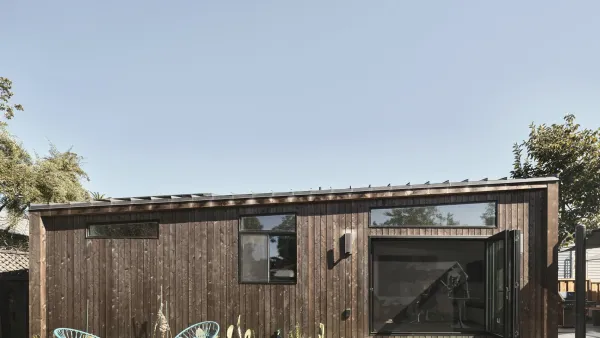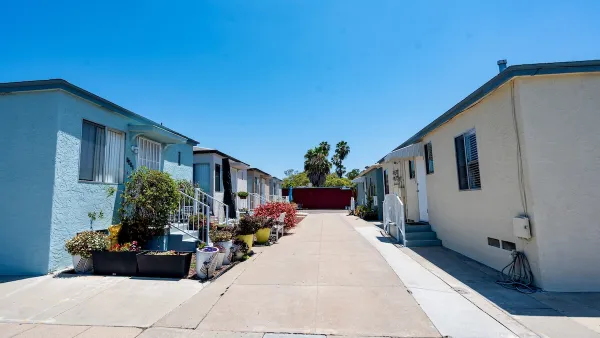Pasadena is revising its zoning regulations to accommodate more accessory dwelling units. This open letter to the city's Planning Commission includes sound suggestions, applicable everywhere.
Accessory dwelling units (ADU) can be a big part of the solution to California's housing crisis. They incrementally increase housing supply. They also increase density, utilize existing infrastructure, and are not as likely as new multi-family residential projects to trigger massive community resistance. However, Pasadena's existing ADU ordinance did more to prevent than facilitate the orderly construction of ADUs. Recent changes in state law brought on by AB 2299 and SB 1069 are intended to alleviate the housing crisis in California by making it easier to build ADUs. Accordingly, Pasadena has started the process of revising its obsolete ADU ordinance. Planner and resident Jonathan Bell was a critic of the first draft of the revised ordinance, which he said was full of "poison pills" having the practical effect of severely limiting ADU construction - and making it expensive. He did so in an open letter. Now a more refined draft is before the city. In another open letter, Bell acknowledges the improvements but says there is still work to be done on the revisions. The letter identifies principles that have far wider applicability than just in Pasadena, including:
- Don't limit ADUs to houses on big lots: Not only does it cut down on the number of eligible lots, but also on the middle class property owners most motivated to build ADUs.
- Allow ADUs in a number of zoning designation areas to increase the number of ADUs.
- Allow ADUs in historic districts.
- Don't encumber ADU's with requirements meant to hide their existence.
- Facilitate garage-over ADU's, including reasonable height restrictions.
- Allow ADU square footages sufficient to accommodate families.
- Waive residential impact fees for ADUs
Bell concludes by reminding the Pasadena Planning Commission that restrictions that make it too difficult to build ADUs result in ADUs that are built "informally," i.e., without permits. He cites both the high number of "informal" dwelling units in Los Angeles County, as well as the many disadvantages of an unknown quantity of "informal" dwelling units. Utmost among these disadvantages: housing that does not meet safety requirements. Bell warns:
The Ghost Ship fire in Oakland and Aviles Family tragedy in Long Beach are vivid reminders of the dangerous consequences of unpermitted housing.
For Bell's full open letter, see the source article.

Analysis: Cybertruck Fatality Rate Far Exceeds That of Ford Pinto
The Tesla Cybertruck was recalled seven times last year.

National Parks Layoffs Will Cause Communities to Lose Billions
Thousands of essential park workers were laid off this week, just before the busy spring break season.

Retro-silient?: America’s First “Eco-burb,” The Woodlands Turns 50
A master-planned community north of Houston offers lessons on green infrastructure and resilient design, but falls short of its founder’s lofty affordability and walkability goals.

Test News Post 1
This is a summary

Analysis: Cybertruck Fatality Rate Far Exceeds That of Ford Pinto
The Tesla Cybertruck was recalled seven times last year.

Test News Headline 46
Test for the image on the front page.
Urban Design for Planners 1: Software Tools
This six-course series explores essential urban design concepts using open source software and equips planners with the tools they need to participate fully in the urban design process.
Planning for Universal Design
Learn the tools for implementing Universal Design in planning regulations.
EMC Planning Group, Inc.
Planetizen
Planetizen
Mpact (formerly Rail~Volution)
Great Falls Development Authority, Inc.
HUDs Office of Policy Development and Research
NYU Wagner Graduate School of Public Service




























